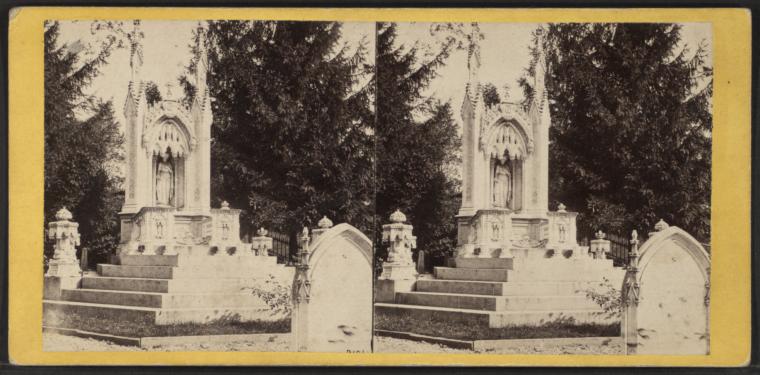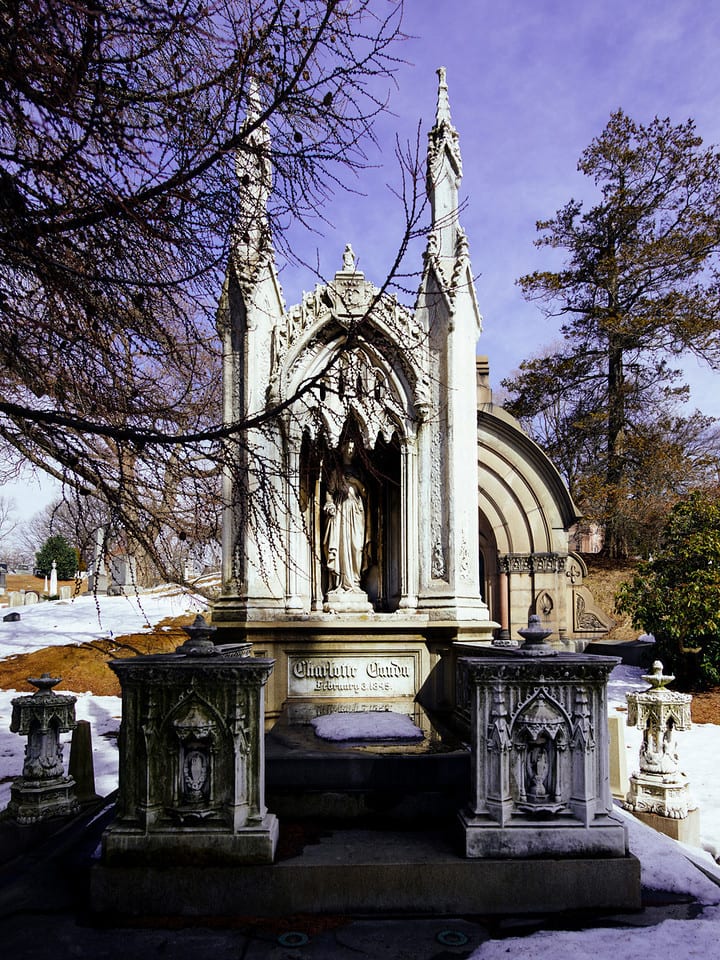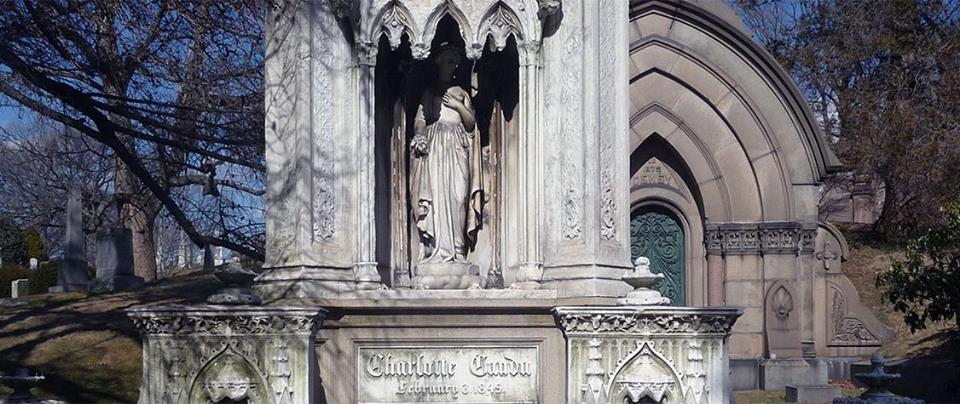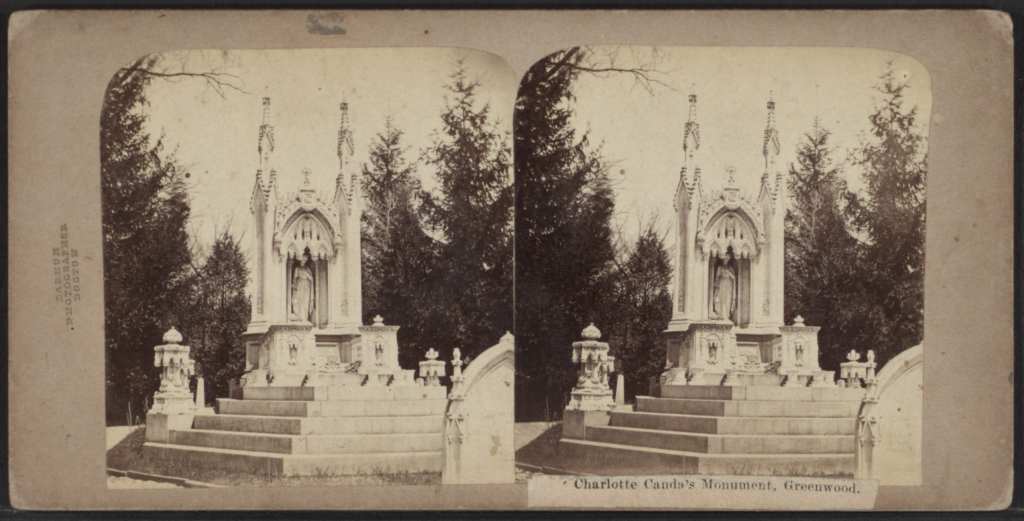Trending Now
Nestled in the vast expanse of Brooklyn’s Green-Wood Cemetery, you’ll find a miniature version of a Gothic cathedral. This ornate tomb, flanked by two angels, is that of Charlotte Canda, a young woman tragically killed on her 17th birthday in 1845.
On her way home from her birthday party in New York City, the horses pulling Canda’s carriage were spooked—some say by the impending thunderstorm. Canda was thrown from the carriage at Broadway and Waverly Place, striking her head on the pavement. Charlotte was the only daughter of Charles, a Frenchman who had served in Napoleon’s army, and his wife, Adele. They had adopted Charlotte as an infant. And on that night, she died in her parents’ arms.
As a Catholic, Canda was first interred at Old St. Patrick’s Cathedral in Manhattan. But her father had other plans. Shortly before she died, Charlotte had made several sketches for her aunt Clemence’s tomb. Instead, they would be put to use for her own monument.

Photo Credit: Wikimedia Commons
The beautiful memorial, constructed by architect John Frazee, is made of Carrara marble in the style of a church. The female statue under the canopy is a likeness of Canda in the dress she was wearing when she was killed, with a star above her head, symbolizing eternal life. The monument is 17 feet high and 17 feet long and features 17 roses, in honor of each year of Canda’s brief life.
After the memorial was finished at Green-Wood, Charlotte’s remains were moved there on April 28, 1848. A monument of this stature did not come without a price: It reportedly cost Canda’s father a whopping $45,000—over a million dollars in today’s currency.
But the tragedy of Charlotte Canda wasn’t over. One year after her death, her fiancé, a young man named Charles Albert Jarrett de la Marie, committed suicide out of grief. Because his manner of death prevented him from being interred in consecrated ground alongside Charlotte, he was buried underneath a tombstone bearing his family’s coat of arms a few feet away from her monument.

Photo Credit: Wikimedia Commons
Erected in front of the memorial was a plaque explaining Charlotte’s story. Though it’s illegible today, an early photograph preserves its text: “Charlotte Canda, died suddenly by falling from a carriage on the night of the 3rd of February 1845 being the seventeenth anniversary of her birth-day.”
In the late 1800s and early 1900s, Charlotte Canda’s tomb was quite the tourist attraction at Green-Wood, drawing thousands of visitors. Back then it was common for people to think of cemeteries more as parks; visitors would stay for hours, picnic during the day, or take a stroll at dusk. Charlotte’s tragic death and the romantic story about her grief-stricken fiancé held huge appeal among the Victorian sensibilities about death and dying. Visiting cards of Charlotte’s memorial were printed and exchanged among friends, and the memorial was a popular subject for artists and early photographers.
The Charlotte Canda monument is one of Green-Wood’s most cherished resting places, and the structure has been earmarked for Green-Wood’s “Saved in Time” program, which appeals to philanthropic groups or individuals to make a donation to protect Green-Wood’s history. The cost of a restoration and conservation of Charlotte’s memorial has been estimated at $150,000.

Photo Credit: Facebook, Ann Harrison
Visiting the memorial today, it’s still possible to see the unique details Charlotte incorporated into what she thought would be a monument to her aunt, including all the things she loved so much in life: books, music, and her pet parrots. It even contains her signature, at the top of the canopy, in the form of her initials, “CC.”
This story was first published on The Lineup
Read more below:
9 American Horror Story Characters Based on Real-Life Killers
8 Real-Life Cabin in the Woods Murders That Will Make You Lock Your Doors






